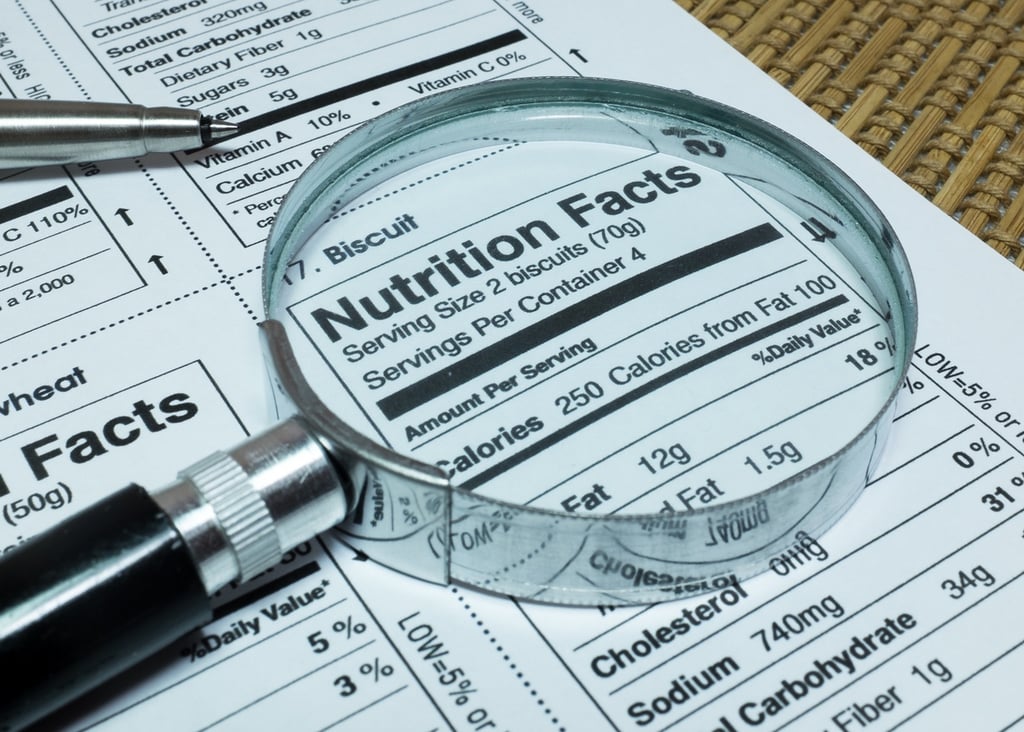 In the United States, food manufacturers are responsible for the proper labeling of their products. The labels must meet all Food and Drug Administration (FDA) and other legal requirements, including nutrition information. The labels cannot be misleading or deceptive. Proper labeling, including nutrition and allergen information, is required for most packaged or prepared foods.
In the United States, food manufacturers are responsible for the proper labeling of their products. The labels must meet all Food and Drug Administration (FDA) and other legal requirements, including nutrition information. The labels cannot be misleading or deceptive. Proper labeling, including nutrition and allergen information, is required for most packaged or prepared foods.
What governs the labeling of food?
Federal food label requirements are outlined in several different laws and regulations, beginning with the Federal Food, Drug, and Cosmetic Act (FFD&C Act). Enacted in 1938, the law is designed to protect both the standards of foods and the pocketbooks of consumers by ensuring that products provide the value the consumer expects. The law covers three basic categories of standards. The food must be properly identified and must meet certain quality and fill-of-container standards (how full the container must be and how it should be measured). Also, nutrition label requirements for packaged foods make it mandatory to include nutrition information on the label unless the manufacturer qualifies for an exemption.
The Fair Packaging and Labeling Act was enacted to ensure that consumers are informed and able to obtain accurate information as to the quantity of package contents and facilitate value comparisons. It prohibits unfair and deceptive packaging and labeling and requires certain standards for placement, form, and contents of labeling.
The Nutrition Labeling and Education Act requires nutrition labeling of most foods and also requires that all nutrient content claims such as “high fiber” or “low fat” and other health claims be consistent with FDA regulations.
The Food Allergen Labeling and Consumer Protection Act of 2004 was enacted to improve food labeling information for consumers who suffer from food allergies. It was especially intended to help children with allergies learn which foods they should avoid.
The Code of Federal Regulations Title 21, Part 101, includes a number of FDA regulations of food labeling. These regulations set standards for food labeling to inform consumers of the food’s nutritional value and ingredients, its manufacturer, health claims, and any allergens.
Which foods require a label?
Food labeling is required for most prepared foods, including breads, cereals, canned and frozen foods, snacks, desserts, and drinks. Nutrition labeling for uncooked produce and fish is voluntary.
What’s included on a label?
The food label must contain the name of the food and the net quantity or amount in the container. Any food that makes nutrition claims, such as “gluten-free” or “low-fat,” must include nutrition facts on the label.
Small Business Nutrition Labeling Exemption
The FFD&C Act provides an exemption to nutrition labeling requirements for businesses with fewer than 100 full-time employees if fewer than 100,000 units of the particular product are sold in the U.S. in a 12-month period. As noted above, any food that makes nutrition claims does not qualify for the exemption. Another type of exemption is available for businesses with gross annual sales of less than $500,000.
Developing Labels
A business may choose to hire a laboratory to perform analyses of food products to determine nutrient content. Also, the USDA makes available a food nutrient database that can be used in conjunction with food recipes to calculate nutrition information required for food labels.
For small business owners who sell packaged food products, it’s important to familiarize yourself with labeling requirements. The FDA offers a number of guides to help you navigate the requirements and ensure your business is in compliance.





